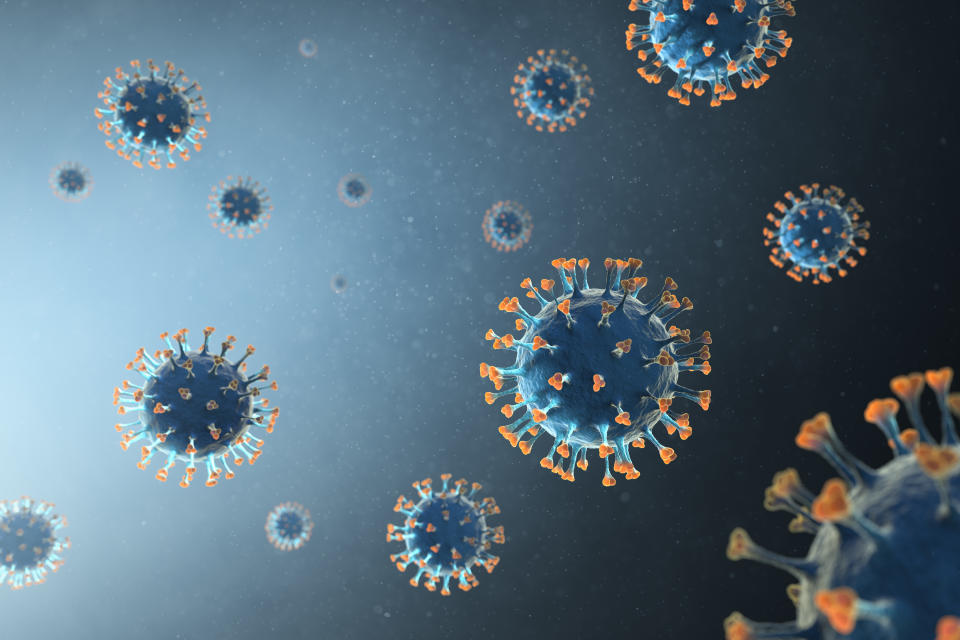Two-thirds of hospitalised coronavirus patients endure long COVID seven weeks after discharge, study suggests

People who overcome a severe case of the coronavirus may continue to endure debilitating symptoms seven weeks after being discharged from hospital, research suggests.
The infection is thought to be mild in four out of five incidences, however, some develop serious complications.
Even people with a relatively moderate case of the coronavirus itself can develop long COVID, when symptoms persist after testing negative for the infection.
The National Institute for Health and Care Excellence (Nice) defines “post-COVID-19 syndrome” as “signs and symptoms that develop during or following an infection consistent with COVID-19, continue for more than 12 weeks and are not explained by an alternative diagnosis”.
Read more: What is long COVID?
Long COVID’s symptoms appear to be vast and varied, however, with patients enduring complications for different lengths of time.
Scientists from University College London (UCL) have found more than two-thirds (69%) of people who are hospitalised with the coronavirus are still enduring fatigue around seven weeks after they were discharged.
Watch: What is long COVID?
With the coronavirus only identified at the end of 2019, doctors were somewhat stumped when it came to detecting long COVID patients, who have reported everything from breathlessness and heart palpitations to brain fog and even signs of organ damage.
NHS England and NHS Improvement therefore commissioned Nice, a health watchdog, to develop diagnosis and treatment guidelines for long COVID.
Nice defines an acute coronavirus infection as “signs and symptoms of COVID-19 for up to four weeks”. The NHS lists a fever, cough, and loss of taste or smell as common coronavirus symptoms.
Read more: Personal trainer hires carer after long COVID leaves him 'wiped out'
“Ongoing symptomatic COVID-19” is defined as “signs and symptoms of COVID-19 [that persist] from four weeks up to 12 weeks”.
Post COVID syndrome, also known as long COVID, is considered to be “signs and symptoms that develop during or following an infection consistent with COVID-19, continue for more than 12 weeks and are not explained by an alternative diagnosis”.
Nice’s treatment guidelines are expected by the end of 2020.
Scientists from King’s College London have previously reported one in 20 former coronavirus patients endure complications for at least eight weeks, while one in 45 is ill for a minimum of 12 weeks.
In September, the same team announced around 300,000 people have complications lasting more than four weeks, while 60,000 are still feeling the effects of the virus over three months later.

To better understand long COVID’s duration, the UCL scientists analysed 384 people who tested positive for the coronavirus and were treated at Barnet Hospital, the Royal Free Hospital or UCL hospitals NHS trust.
The patients were in hospital for an average of 6.5 days. Around 54 days after discharge, they were contacted by a member of the medical team.
Read more: Long COVID may trigger skin symptoms
Results – published in the journal Thorax – revealed more than two thirds (69%) were still experiencing fatigue.
Over half (53%) continued to endure persistent breathlessness, while 34% still had a cough.
Perhaps surprisingly, more than one in 10 (15%) reported depression.
Scientists from the University of Oxford recently found coronavirus survivors are around twice as likely to develop a psychiatric disorder, like anxiety, than those who overcome flu.
Early in the pandemic, experts also warned the outbreak could have a profound and pervasive impact on people’s mental health.
Fifty-four days post-discharge, just under two in five (38%) of the patients’ chest X-rays were still abnormal, while in 9% of cases the scans showed signs of deterioration.
Among the patients whose chest X-ray showed signs of infection upon discharge, just under two-thirds (62%) had a normal scan when it was repeated down the line.
The remaining 38%, however, were still showing abnormal changes. Almost one in ten (9%) of these second X-rays were worse than the scan carried out upon discharge.
With long COVID somewhat of a mystery, no medic can accurately gauge whether a patient will improve, remain consistently ill or even deteriorate.
“Patients whose COVID-19 illness is serious enough for them to require hospital care often continue to suffer significant symptoms for many weeks after their discharge,” said co-lead author Dr Swapna Mandal.
Medics and officials alike hope better understanding long COVID will enable doctors to diagnose and help patients.
The condition’s cause is unclear, however, it has been suggested the immune response triggered by the coronavirus may lead to lasting inflammation that can theoretically affect any part of the body.
The infection may also linger in pockets of the body after it has been cleared from the airways.
With the treatment guidelines yet to be published, patients are advised to rest as much as possible and pace themselves throughout the day.
“Understanding long COVID is critical in helping people who have been through this life-changing experience return to health,” said co-lead author Professor John Hurst.
Watch: Can you catch coronavirus twice?

 Yahoo Finance
Yahoo Finance 
